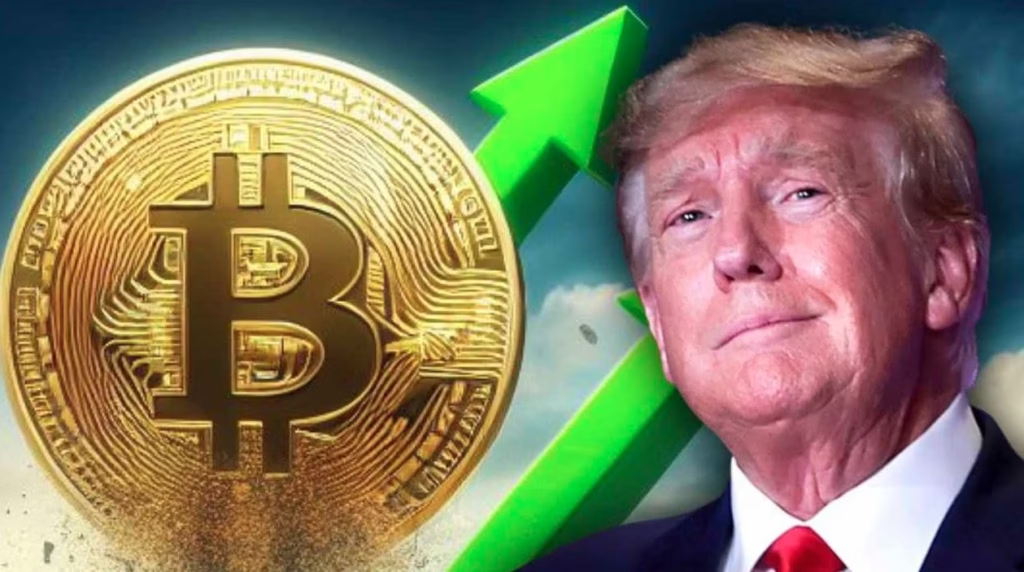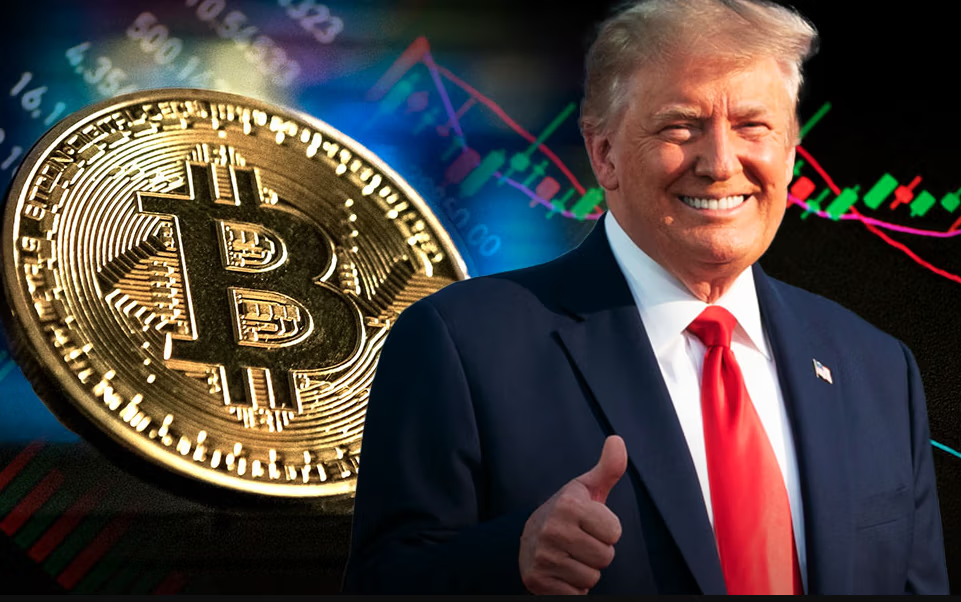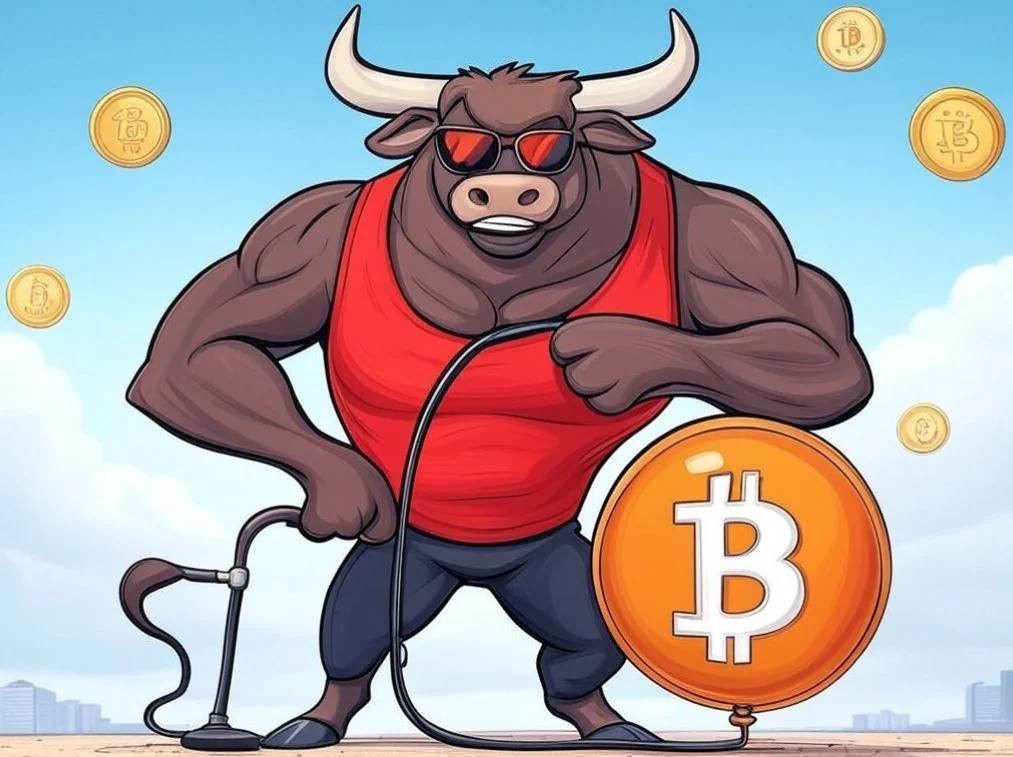Table of Contents
- Why Trump’s Crypto Policy Matters
- Who is Paul Atkins? A Crypto Advocate at the Helm of the SEC
- Trump’s History with Cryptocurrency
- Potential Changes to Crypto Regulations
- How This Affects U.S. Crypto Investors
- Does Donald Trump Own Bitcoin?
- Final Thoughts: What’s Next for U.S. Crypto Policy?
Why Trump’s Crypto Policy Matters
Cryptocurrency regulations in the U.S. are at a crossroads and President-elect Donald Trump’s decision to appoint Paul Atkins as the new chair of the Securities and Exchange Commission (SEC) could signal a shift toward a more crypto-friendly approach. As investors brace for potential changes and wonder does Donald Trump own Bitcoin or any cryptocurrencies at all? Let’s try to understand the implications of Trump’s future crypto policy and Atkins’ leadership.
Who is Paul Atkins? A Crypto Advocate at the Helm of the SEC
Paul Atkins is a well-known figure in financial regulation, particularly within conservative circles. He is regarded as a pro-business advocate with a more lenient approach to financial oversight, including cryptocurrency. His stance aligns with a “light-touch” regulatory philosophy, suggesting fewer burdens on financial innovators like crypto exchanges and decentralized finance (DeFi) platforms.
As the new SEC chair, Atkins is likely to focus on fostering innovation, reducing red tape, and encouraging crypto adoption rather than issuing harsh penalties. Especially if it is revealed that in fact, Donald Trump owns Bitcoin. This would mark a stark contrast to Gary Gensler, who emphasized the need for strict enforcement of securities laws in the crypto space.
Trump’s History with Cryptocurrency
Donald Trump’s personal views on cryptocurrency have shifted over time. In 2019, he famously tweeted that he was “not a fan of Bitcoin and other cryptocurrencies” and criticized them for their association with illegal activity. However, as of 2024, his stance appears to have softened, as evidenced by his decision to appoint Paul Atkins as SEC chair.
Advertisement
Join Gemini today and get $15 in free Bitcoin when you trade with an easy, secure and U.S.-regulated crypto exchange you can trust. Offer valid for U.S. residents only; crypto investments are risky.
Trump’s new approach may be more pragmatic. Rather than opposing crypto outright, he seems focused on creating a balanced regulatory framework that encourages economic growth while addressing potential risks. If Trump embraces crypto as part of his broader financial policy, the U.S. could become a more welcoming environment to buy Bitcoin and digital assets.
Potential Changes to Crypto Regulations
Paul Atkins’ leadership could lead to several major shifts in U.S. crypto policy. Here’s what could change:
- Relaxed Definition of Securities: One of the most contentious issues in crypto regulation is whether digital tokens qualify as securities. Under Gensler, many tokens were treated as securities, subjecting them to stricter oversight. With Atkins in charge, this classification might be redefined, which could exempt many tokens from SEC jurisdiction.
- Reduced Enforcement Actions: The SEC’s aggressive enforcement actions against major crypto firms like Ripple and Coinbase have drawn criticism from the industry. Atkins’ appointment could signal a slowdown in these lawsuits, leading to more industry-friendly settlements.
- Support for DeFi and Web3 Projects: Atkins may push for regulatory clarity for decentralized finance (DeFi) platforms and Web3 initiatives. This could pave the way for new projects to flourish without the fear of legal action.
- More Friendly Environment for Crypto Companies: By reducing regulatory friction, Atkins could attract more crypto firms to operate within the U.S., reducing the industry’s reliance on offshore operations.
These changes could encourage crypto entrepreneurs to base their businesses in the U.S., fostering innovation and job creation within the country.
How This Affects U.S. Crypto Investors
For U.S. crypto investors, Trump’s crypto agenda and Atkins’ leadership could create a more stable and predictable regulatory environment. Here’s how investors might benefit:
- Increased Market Confidence: If crypto companies face fewer lawsuits and more regulatory clarity, the market could experience increased investor confidence, potentially driving up the value of certain cryptocurrencies.
- Better Access to Crypto Services: Companies like Coinbase and Binance might be more willing to offer new products and services without the fear of regulatory backlash, giving investors access to new financial opportunities.
- Lower Risk of Crypto Bans: Unlike countries that have outright banned crypto, such as China, the U.S. may position itself as a crypto-friendly hub, promoting long-term industry growth.
With these potential benefits, U.S. investors have reason to remain optimistic about the future of crypto under Trump’s administration.

Does Donald Trump Own Bitcoin?
The question Does Donald Trump own Bitcoin? is one that’s often speculated upon. There is no confirmed evidence that Trump personally owns Bitcoin or any other cryptocurrency. However, his stance on crypto has shifted over the years from outright criticism to a more pragmatic approach as of 2024.
Given Trump’s strong business acumen and financial connections, it wouldn’t be surprising if he re-evaluated his stance on digital assets. His support for pro-crypto policies may be seen as a strategy to appeal to younger, tech-savvy voters and promote U.S. innovation.
There is no evidence that Donald Trump owns Bitcoin, personally. While he has been linked to discussions about Bitcoin, including his support for a “strategic Bitcoin reserve” for the United States, there is no public record or credible report that confirms he holds Bitcoin in his personal investment portfolio.
Trump’s cryptocurrency holdings primarily include Ethereum (ETH) and its wrapped form (wETH), along with a notable investment in a token called “TRUMP” (MAGA) coin. His crypto portfolio, as of recent reports, includes approximately $1.02 million in TRUMP tokens and $3.28 million in ETH and wETH. Interestingly, Bitcoin is absent from his disclosed holdings despite its significance in the broader crypto market.
Moreover, Trump has shifted his stance on Bitcoin and crypto in general. While he was once a critic of cryptocurrencies, he now supports the idea of the United States holding Bitcoin as part of a “strategic reserve,” a proposal introduced by Senator Cynthia Lummis. The plan aims for the U.S. to accumulate and hold 1 million Bitcoin over the next five years as a hedge against economic instability.
Final Thoughts: What’s Next for U.S. Crypto Policy?
The potential appointment of Paul Atkins as SEC chair under President-elect Donald Trump is a development worth watching. For crypto enthusiasts, it could mean fewer enforcement actions, more regulatory clarity, and a more favorable climate for crypto businesses.
While it’s too early to know exactly how crypto regulations will evolve, one thing is clear even if Donald Trump owns Bitcoin: the U.S. is poised for change. If Atkins adopts a light-touch regulatory approach, crypto adoption in the U.S. could accelerate. Investors, developers, and enthusiasts alike should stay informed and keep an eye on emerging policy changes as Trump’s presidency unfolds.
With Trump’s history of bold decision-making and Atkins’ track record as a pro-crypto advocate, the future of digital assets in the United States might just be brighter than ever.




